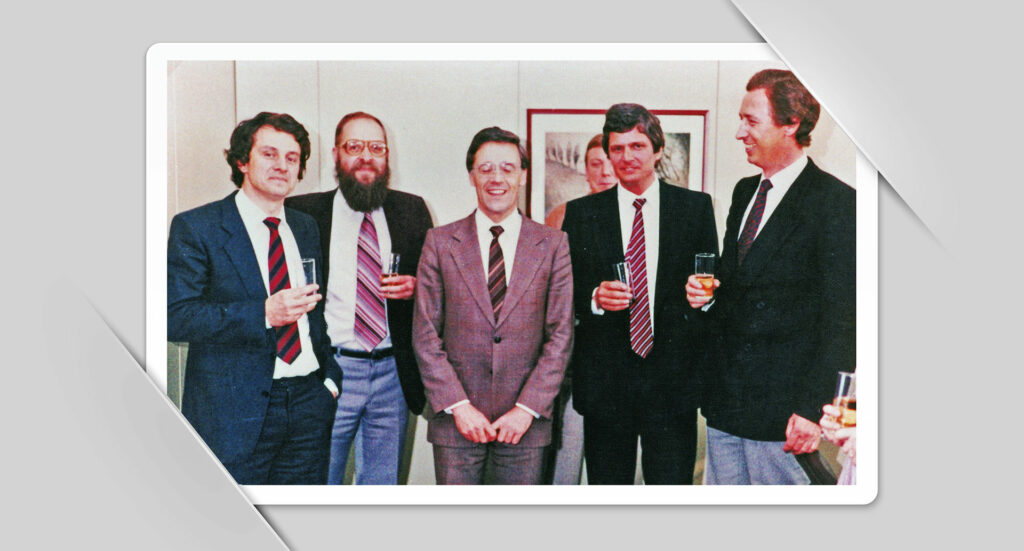Five founders and the vision to transform the way businesses run – that is how SAP’s story began in 1972. I’m privileged to have been part of this journey for almost two decades. It has been a long way from automating financial accounting for a handful of customers to providing end-to-end solutions to companies that generate 87 percent of total global commerce. Today, SAP is the market leader in enterprise application software.
New realities require new ways of doing business. This year alone, we have seen war, mass migration, and an ongoing pandemic; all of this while we are running out of time to tackle climate change and energy transformation. There is hardly an organisation that has not been impacted by these disruptions. Simply, crisis mode is becoming the new normal for businesses.
Crises challenge not only the way we live, but also the way we work. To help our customers thrive despite uncertainty, SAP enables them to transform into intelligent, networked, and sustainable enterprises. This requires much more than a technical migration. Business process innovation is what’s required, no matter a customer’s starting point.
Enabling business transformation
ERP is at the centre of business process innovation – and the focus is shifting from ‘enterprise’ to ‘network’ as processes extend into an organisation’s ecosystem and across industries. With SAP S/4HANA Cloud, we make innovation available right where and when it is needed.
Modular Today’s business challenges have become too complex and fast-paced to be handled by a static, complex ERP system. That’s why SAP S/4HANA Cloud has a modular architecture. Its high degree of standardisation keeps the core clean and untouched. In-app extensibility and extensions built on SAP Business Technology Platform make it possible to respond to emerging business needs, ensure fast time-to-value, and deliver quick business outcomes.
Autonomous The future of ERP is an autonomous ERP. With best-in-class AI and ML capabilities, users can focus on value-generating activities, while processes which have been historically manual are being automated. This includes core finance capabilities to be fully automated by delivering real-time prevention controls and increasing meta-data coverage in values.
Integrated Our modular cloud ERP connects front and back-end systems and covers business processes end-to-end: hire-to-retire, lead-to-cash, source-to-pay and design-to-operate. SAP S/4HANA Cloud integrates with SAP’s entire portfolio, including industry and line of business solutions. It offers pre-configured integration scenarios and several hundred standard APIs for integration with third-party data and applications. We also provide our domain model to partners, making SAP S/4HANA Cloud an open system.
Open The lines between customers, partners, and competitors are blurring. Ecosystems are important in bringing complementary skills together. Today, companies must team up to deliver innovation at scale and along the value chain – and so does SAP with over 23,000 partners. Together, we are developing industry-specific, modular cloud solutions that extend existing systems. This way, we help our customers focus on the specific needs of their industry. At the same time, the interoperability of industry cloud solutions enables companies to leverage cross-industry business models and process flows.
As an example, the automotive sector has gone through radical change over the past years. Traditionally, car manufacturers differentiated themselves by how they designed and built vehicles. Now, how they offer and sell their products is increasingly important. Subscription and consumption-based commercial models are gaining ground in response to changing customer demand. Automotive companies can adopt service industry business models where flexible commercial models are nothing new.
Building resilient supply chains
Networked enterprises are resilient enterprises. Agility and flexibility provide the basis for resilience – something companies seek for their IT environments as well.
Today’s supply chains are complex. For example, enjoying a simple cup of coffee requires 29 companies across 18 countries to work together. That gives a rough idea of the magnitude of companies involved in products and solutions that are far more complex than a cup of coffee. With our supply chain management portfolio, we therefore create a single digital thread for products and assets, resulting in efficiency gains for all parties involved.
As the largest B2B network, SAP Business Network brings together millions of suppliers, logistics, and service providers from 190 countries. By providing real-time visibility, the network enables companies to instantly act on disruptions, thereby transforming fragmented, siloed supply chains into resilient, agile and collaborative networks.
A cup of coffee requires 29 companies across 18 countries to work together. That gives an idea of the magnitude of companies involved in products and solutions that are far more complex than a cup of coffee.
Coming back to the automotive industry, recalls because of faulty components are a common problem associated with inconvenience for the buyers and costs for manufacturers. When data from production quality records is shared between suppliers and manufacturers, they can directly identify and contact affected buyers, rather than recalling entire batches. Industry networks such as Catena-X in the automotive sector can make an important contribution here, fostering secure and standardised data exchange across the value chain.
Moving towards a sustainable enterprise
Greater transparency along the value chain also drives more sustainable decisions, conserves resources, and helps move towards a more circular economy. We help our customers embed sustainability in their business processes and up and down the value chain. It’s our ambition to support customers in achieving zero emissions, zero waste, and zero inequality, while enabling holistic steering and reporting of their sustainability efforts.
Last year alone, we extended our sustainability portfolio with three new SAP S/4HANA cloud-native applications, all delivered in a modular way on SAP BTP. We won’t stop here: we are embedding sustainability across our solution portfolio as it remains our vision to transform the way businesses run. And given today’s challenges, it is about taking a transformative approach towards sustainability.
A modern ERP system is crucial for businesses to thrive despite these challenges. To realise business process innovation, it needs to be modular, autonomous, integrated and open. That’s the foundation for resilient supply chains and a more sustainable future.
SAP S/4HANA Cloud combines these capabilities and delivers continuous innovation so our customers can stay on top as the world around them keeps evolving. I’m excited to be part of this journey as we are shaping the next decades of enterprise software together.




